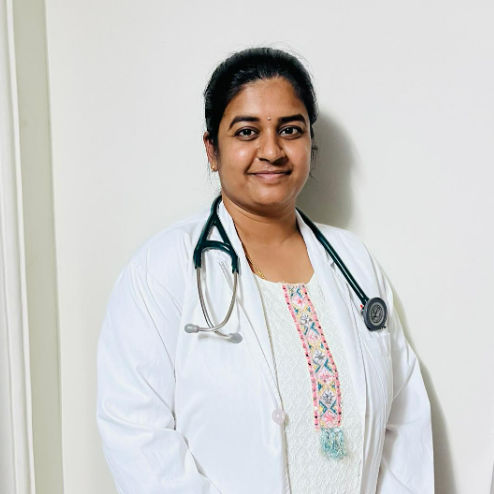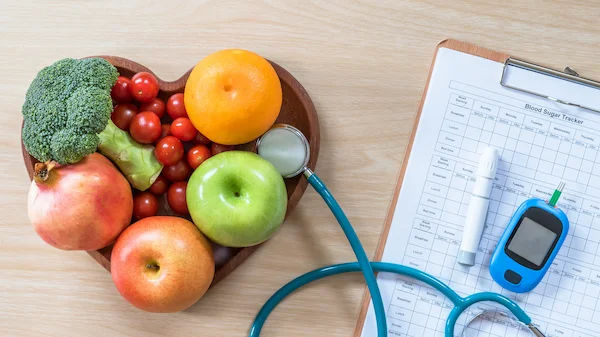Compare Type 1 and Type 2 Diabetes Severity
Curious about the difference between Type 1 and Type 2 diabetes? Discover how each type affects the body, its severity, complications, and how to manage them effectively.

Written by Dr. J T Hema Pratima
Reviewed by Dr. Rohinipriyanka Pondugula MBBS
Last updated on 22nd Jul, 2025

Introduction
Diabetes is a chronic condition that affects millions of people worldwide. While both Type 1 and Type 2 diabetes involve problems with insulin and blood sugar control, they differ in causes, symptoms, and management. Many people wonder which type is more severe, but the answer isn’t straightforward; both can have serious health consequences if not managed properly.
In this article, we’ll compare Type 1 and Type 2 diabetes, explaining their differences, potential complications, and how to manage them effectively.
Type 1 vs. Type 2 Diabetes: Key Differences
Let’s look into the key differences of Type 1 vs. Type 2 Diabetes:
1. Causes and Onset
Type 1 Diabetes:
An autoimmune disease where the immune system attacks insulin-producing cells in the pancreas.
Usually diagnosed in children or young adults, but it can occur at any age.
Not linked to lifestyle factors like diet or weight.
Type 2 Diabetes:
Occurs when the body becomes resistant to insulin or doesn’t produce enough.
Strongly linked to obesity, poor diet, and lack of exercise.
Typically develops in adults over 40, but is rising in younger people due to lifestyle changes.
2. Symptoms
Both types share similar symptoms, but their severity and speed of onset differ:
Type 1:
Symptoms appear suddenly (within weeks) and can be severe.
Extreme thirst, frequent urination, sudden weight loss, fatigue, and blurred vision.
Without insulin, diabetic ketoacidosis (DKA), a life-threatening condition, can occur.
Type 2:
Symptoms develop slowly (over years) and may go unnoticed.
Increased thirst, frequent infections, slow-healing wounds, and tingling in hands/feet.
Many people discover they have Type 2 diabetes during routine check-ups.
3. Treatment & Management
Type 1 Diabetes:
Lifelong insulin therapy (injections or pump) is required.
Blood sugar monitoring is critical to prevent dangerous highs and lows.
Diet and exercise help, but cannot replace insulin.
Type 2 Diabetes:
Managed with lifestyle changes (diet, exercise, weight loss) first.
Oral medications (like metformin) or insulin may be needed if blood sugar remains high.
Regular monitoring helps prevent complications.
Which Type is More Severe?
Neither Type 1 nor Type 2 diabetes is "worse"; both can lead to serious complications if uncontrolled. However, they pose different risks:
Severity of Type 1 Diabetes
More immediate dangers (like DKA) if insulin is missed.
Requires strict daily management to avoid emergencies.
Higher risk of severe hypoglycemia (low blood sugar) due to insulin dependence.
Get Your Symptoms Checked By An Endocrinologist
Severity of Type 2 Diabetes
Often progresses silently, leading to complications like heart disease, nerve damage, and kidney failure.
Lifestyle-related risks (obesity, high blood pressure) worsen the condition.
It can sometimes be reversed or managed without insulin if caught early.
Bottom Line: Both types require careful management, but Type 1 demands constant vigilance, while Type 2 can often be controlled with lifestyle adjustments in the early stages.
Complications of Uncontrolled Diabetes
If left untreated, both types can lead to:
Heart disease & stroke
Kidney damage (nephropathy)
Nerve damage (neuropathy) & foot problems
Vision loss (retinopathy)
Slow wound healing & infections
Type 2 diabetes also increases the risk of high blood pressure and cholesterol, while Type 1 patients face higher risks of DKA and severe hypoglycemia.
How to Manage Diabetes Effectively
To manage diabetes effectively follow:
For Type 1 Diabetes:
Take insulin as prescribed (never skip doses).
Monitor blood sugar regularly (CGM devices can help).
Follow a balanced diet (carb counting is essential).
Exercise safely (check glucose levels before & after).
For Type 2 Diabetes:
Lose weight if overweight (even a 5-10% weight loss helps).
Eat a low-sugar, high-fibre diet (whole grains, veggies, lean proteins).
Exercise daily (30 minutes of walking can improve insulin sensitivity).
Take medications as directed (don’t stop without consulting a doctor).
General Tips for Both Types:
Regular doctor visits (A1C tests every 3-6 months).
Avoid smoking & limit alcohol.
Check feet daily for cuts or infections.
Manage stress (it affects blood sugar levels).
When to See a Doctor?
If you or a loved one experience:
Extreme thirst, fatigue, or unexplained weight loss (possible Type 1).
Frequent infections, slow healing, or blurred vision (possible Type 2).
Confusion, dizziness, or fruity-smelling breath (emergency signs of DKA).
Early diagnosis and treatment can prevent complications. If you suspect diabetes, get tested immediately.
Conclusion
Both Type 1 and Type 2 diabetes are serious but manageable. While Type 1 requires lifelong insulin, Type 2 can often be controlled with lifestyle changes—if detected early. The key is awareness, regular check-ups, and sticking to your treatment plan.
If you have concerns about diabetes, consult a specialist for personalized advice. Apollo24|7 offers easy online consultations and diabetes management programs—book an appointment today to take control of your health!
Get Your Symptoms Checked By An Endocrinologist
Get Your Symptoms Checked By An Endocrinologist

Dr. Nithin Reddy Modhugu
Endocrinologist
6 Years • MBBS, MD (General Medicine), DNB (Endocrinology)
Hyderabad
Dr. Nithin's Endocrine Clinic, Hyderabad
(100+ Patients)

Dr. Shiva Madan
Endocrinologist
10 Years • MBBS , MD (General medicine) , DM (Endocrinology)
Bikaner
Sushma diabetes and Endocrine center, Bikaner
Dr. M.a. Mujeeb Afzal
Endocrinologist
13 Years • MBBS , MD (General medicine) , DM (Endocrinology)
Hyderabad
Premier Hospital, Hyderabad

Dr. Gayatri S
Endocrinologist
4 Years • Suggested Qualifictaion- MBBS, MD (Internal Medicine), DM (ENDOCRINOLOGY)
Nellore
Narayana hospital, Nellore

Dr. Venkata Rakesh Chintala
Endocrinologist
8 Years • MBBS,MD( GEN MEDICINE), DM ( ENDOCRINOLOGY)
Krishna district
Sanjeevani Hospital, Krishna district
